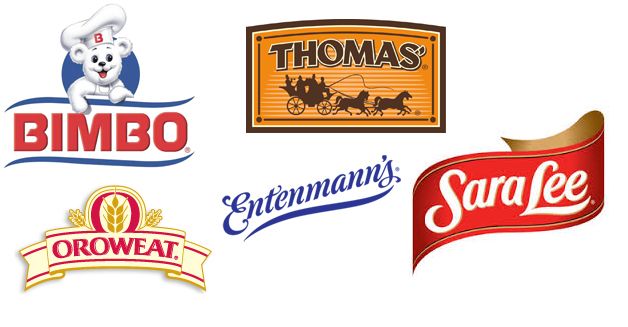Top Class Actions’s website and social media posts use affiliate links. If you make a purchase using such links, we may receive a commission, but it will not result in any additional charges to you. Please review our Affiliate Link Disclosure for more information.

The Bimbo bread class action lawsuit alleges the heart symbol is misleading because Bimbo failed to inform consumers that the check mark was a paid endorsement.
Additionally, the company allegedly made label claims that the Bimbo bread products are a good source of whole grains, despite an FDA ban on these claims, and also falsely stated some of their bread products were “100% whole wheat,” according to the Bimbo class action lawsuit.
The bread products included in the class action are sold under various brand names owned by Bimbo, including Thomas’ Plain Bagel Thins, several varieties of Sara Lee whole wheat bread products, Entenmann’s brand products and Bimbo Original Toasted Bread.
U.S. District Court Judge Haywood S. Gillian Jr., who is presiding over the Bimbo bread misbranding class action lawsuit, stated at the beginning of the May 6 hearing that he is concerned with the lack of evidence regarding the labeling claims disputed in this complaint.
“I’m surprised that there appears to be a factual dispute regarding the labels and what they said. I’m not sure why we won’t have a clear record on that,” Judge Gillian said.
In their motion to dismiss the class action lawsuit, Bimbo claims that their product labels changed during the alleged Class Period (March 2009 to present); however, the plaintiffs claim they have not been presented evidence to support Bimbo’s assertion.
Additionally, according to the plaintiffs’ attorneys, even if there were label changes made to Bimbo’s bread products, the period of time these labels would have been used would have had established beginning and end dates. Since bread has a short shelf life, it would not be very difficult for Bimbo or the court to determine which consumers in the proposed Classes would have seen which labels, plaintiffs argued.
The judge also questioned the plaintiffs’ counsel over whether or not the plaintiffs can demonstrate that other consumers that would be potentially included in one of the four Bimbo misbranding classes relied on these labels when purchasing the Bimbo bread products.
Bimbo’s legal representative claims that even though the plaintiffs gave their testimony that the labels were a major factor in buying Bimbo brand name bread products, “The statement has to be that the label was the reason they bought it, and they haven’t made that showing,” Bimbo’s attorney said.
Additionally, Judge Gilliam asked both plaintiffs and defendants to address the argument made by the complaint that the plaintiffs and the proposed classes receive full compensation for the money spent, as the bread products are allegedly valueless.
The plaintiffs’ counsel argued that misbranded foods like Bimbo’s bread products are unlawful to possess and sell, should not be on store shelves, and are therefore valueless in the eyes of the law. Bimbo’s attorney countered that even if the bread products were mislabeled, they still held some nutritional value and that the plaintiffs have not made claims that the products were harmful.
The judge has yet to indicate how he will rule on these and other claims in this Bimbo bread class action lawsuit.
Despite attempts by Bimbo to dismiss this misbranding class action lawsuit, this complaint has survived dismissal twice, once in October 2013 and another time in March of last year, though plaintiffs’ claims were trimmed.
The plaintiffs are represented by Pierce Gore of Pratt & Associates as well as Keith M. Fleischman and Bradley F. Silverman of the Fleischman Law Firm PLLC.
The Bimbo Bread Misbranding Class Action Lawsuit is Ang, et al v. Bimbo Bakeries USA Inc., Case No. 3:13-cv-01196, in the U.S. District Court for the Northern District of California.
ATTORNEY ADVERTISING
Top Class Actions is a Proud Member of the American Bar Association
LEGAL INFORMATION IS NOT LEGAL ADVICE
Top Class Actions Legal Statement
©2008 – 2024 Top Class Actions® LLC
Various Trademarks held by their respective owners
This website is not intended for viewing or usage by European Union citizens.















One thought on Plaintiffs Ask to Certify Wheat Bread Misbranding Class Action Lawsuit
add me